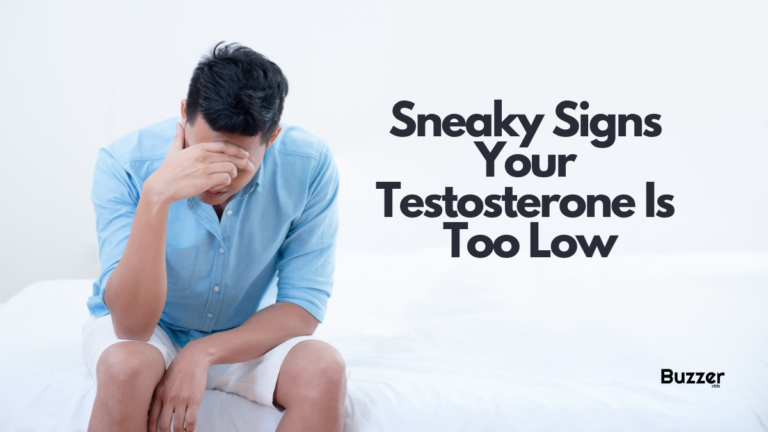Introduction
Testosterone is a hormone that is produced in the testicles in men and the ovaries in women, although men have significantly higher levels of this hormone than women. It plays a crucial role in many aspects of male health, including the development of male physical characteristics like a deep voice, facial hair, and muscle mass. However, testosterone also plays a role in the overall health of both men and women, including regulating sex drive, bone density, and red blood cell production.
While testosterone levels naturally decline with age, low testosterone levels can occur in men of any age and can cause a variety of symptoms that may go unnoticed or be attributed to other conditions. Here are some sneaky signs your testosterone is too low.
Decreased sex drive
Testosterone is known as the sex hormone for a reason, and one of the primary symptoms of low testosterone is a decrease in sex drive. Men with low testosterone may also experience difficulty getting or maintaining an erection.
Fatigue
Testosterone is essential for maintaining energy levels, and low levels of testosterone can lead to feelings of fatigue and exhaustion. You may find that you need more sleep than usual, or that you struggle to stay alert and focused during the day.
Decreased muscle mass
Testosterone is responsible for building and maintaining muscle mass, so men with low testosterone may notice a decrease in muscle mass and strength. This can make it difficult to perform everyday tasks and exercise, and may also lead to weight gain and a decrease in overall physical activity.
Increased body fat
Low testosterone levels can also lead to an increase in body fat, particularly in the abdomen area. This is because testosterone helps to regulate fat metabolism and distribution in the body, so when levels are low, fat may accumulate in certain areas.
Decreased bone density
Testosterone is important for maintaining bone density, so low testosterone levels can lead to a higher risk of osteoporosis and fractures. This is particularly true for older men, who may already be experiencing a natural decline in bone density.
Mood changes
Testosterone plays a role in regulating mood, and men with low testosterone may experience irritability, depression, and a lack of motivation. You may find that you are more easily agitated, or that you struggle to find enjoyment in activities that you used to enjoy.
Brain fog
Testosterone is important for cognitive function, and low testosterone levels can lead to difficulty concentrating and a decrease in overall mental clarity. You may find that you struggle to remember things or to focus on tasks, which can be frustrating and impact your productivity.
Reduced facial or body hair growth
Testosterone is responsible for the development of male physical characteristics, including facial and body hair growth. Men with low testosterone may notice a decrease in hair growth or thinning of facial or body hair.
Hot flashes
Hot flashes are a common symptom of menopause in women, but they can also occur in men with low testosterone levels. You may experience sudden, intense feelings of warmth or flushing, which can be accompanied by sweating and an increased heart rate.
Breast tissue growth
While rare, men with low testosterone levels may experience an increase in breast tissue growth, known as gynecomastia. This is because testosterone helps to regulate the balance of estrogen and testosterone in the body, and when levels are low, estrogen may become dominant and lead to breast tissue growth.
If you are experiencing any of these sneaky signs your testosterone is too low, it is essential to speak with your doctor. A simple blood test can determine your testosterone levels, and if they are found to be low, your doctor may recommend testosterone replacement therapy.
Conclusion
In conclusion, low testosterone levels can have a significant impact on your overall health and well-being. By paying attention to these sneaky signs, you can take steps to address any issues and improve your quality of life. If you suspect that you may have low testosterone levels, speak with your doctor to discuss testing and potential treatment options.
Visit our Medical News Section for more medical news and information.




